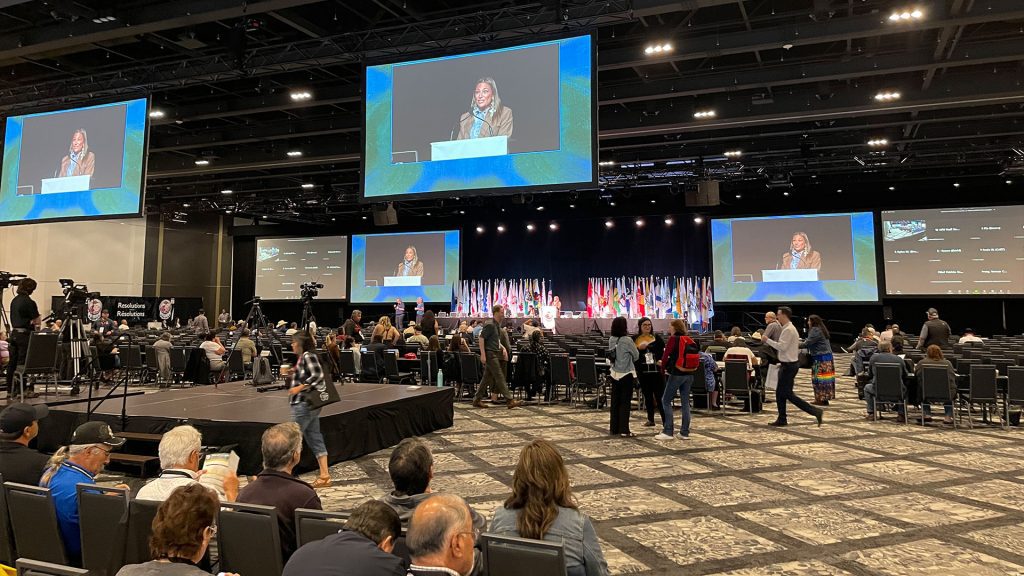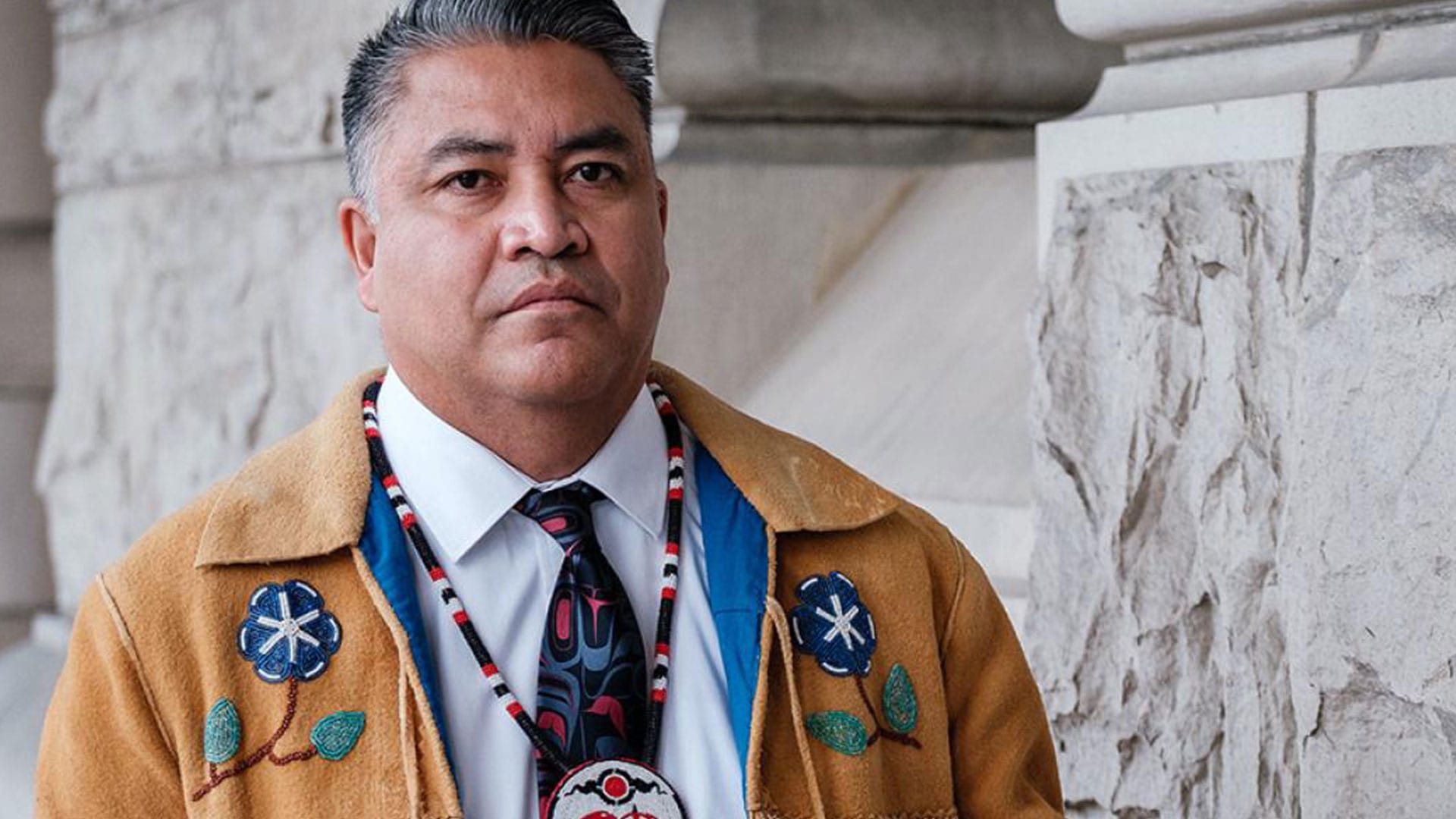
View from the floor of the AFN annual general assembly in Halifax. Photo: Angel Moore/APTN News
Some chiefs continued pushing Tuesday for RoseAnne Archibald, the ousted leader of the largest First Nations advocacy organization in Canada, to be reinstated.
After opening speeches at the Assembly of First Nations annual general assembly, the chief of Taykwa Tagamou Nation in northwest Ontario, was among the three who moved to reinstate the former national chief, calling her ouster “very unfair.”
“I feel today that we’re ignoring the fact of what’s actually going on,” said Bruce Archibald.
The motions were not adopted.
The former national chief herself appeared before the assembly virtually and accused the organization’s leadership of silencing the voices of those questioning her removal.
“It is a railroaded process that is unfair, that is not allowing for accountability for the political coup that happened against me by the regional chiefs,” she said.

Archibald added she believes the organization “has gone off the rails.”
Before the gathering, Archibald released a statement saying she would attend the first day virtually but may travel to Halifax for the rest of the meeting, which runs through Thursday.
Independent third-party reviews of the complaints against Archibald concluded that some of Archibald’s behaviour amounted to harassment. Investigators also found she breached the organization’s policies by retaliating against complainants and failing to maintain confidentiality.
Terry Teegee, regional chief for British Columbia, told reporters on Tuesday the decision to remove Archibald was made by the Assembly of First Nations’ chiefs, not members of its executive committee – whom Archibald had accused of orchestrating her ousting.
Seventy-one per cent of the 231 chiefs who took part in the virtual special assembly on June 29 voted in favour of the resolution to remove Archibald from her role, though Teegee noted not everyone attended.

“It was left out of our hands,” he said. “We followed the rules, wherever it fell in terms of the vote, and that was decided by the chiefs.”
He called it “disappointing” the two-year saga that led to Archibald’s removal means the organization’s progress has lagged on key files, including safe drinking water, housing, the drug crisis and climate change.
Teegee rejected the belief anything has been derailed, but acknowledged its turmoil has slowed its work.
“Over the next few days, hopefully we can pick up the slack.”
One Nova Scotia chief expressed frustration with the tumult and urged the AFN to move on to more pressing issues.
Winnipeg landfill
“We have people in our community sitting in poverty, being murdered, a Winnipeg landfill not being searched,” Annie Bernard-Daisley, co-chair of the Assembly of Nova Scotia Mi’kmaw Chiefs, said during the opening of the assembly.
“The longer we delay, the less we will do for our own people. Let’s check our ego at the door and do our job.”
Speaking Tuesday, interim national chief Joanna Bernard told chiefs that work was underway to address the shortcomings within the organization and “rebuilding staff morale.”
She pointed to efforts around bolstering its whistleblower policies, code of conduct and the process for reporting harassment.
Taken together, Bernard pledged that the organization wanted to offer a “safe and supportive environment where all individuals can speak up without fear of retaliation.”
Financial audit
Archibald has alleged she was targeted for fighting corruption and demanding a financial audit. She had called on chiefs and supporters to urge that the organization to reinstate her.
Bernard expressed an openness during her speech Tuesday to Archibald’s push for a financial audit, saying the organization’s financial statements are audited annually, and rejected the former chief’s claims around problematic spending.
If a committee tasked with examining the issue believes a forensic audit is necessary, “we will follow that guidance,” Bernard said.
Before the gathering got underway, the organization announced it was sharing the past decade’s worth of independent, audited financial statements, which it said “confirm the absence of any financial concerns.”
Chiefs are meeting to discuss issues including First Nations policing, self-governance legislation for Métis communities and access to safe drinking water.
The election of a new national chief in December and the appointment of a chief electoral officer are on the agenda, as well as speeches from federal ministers.










